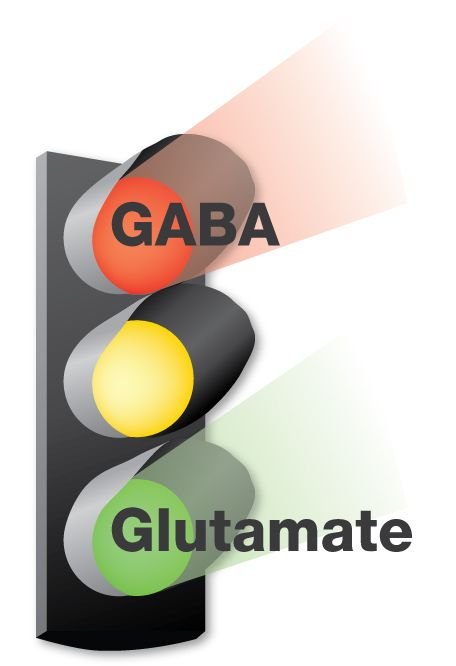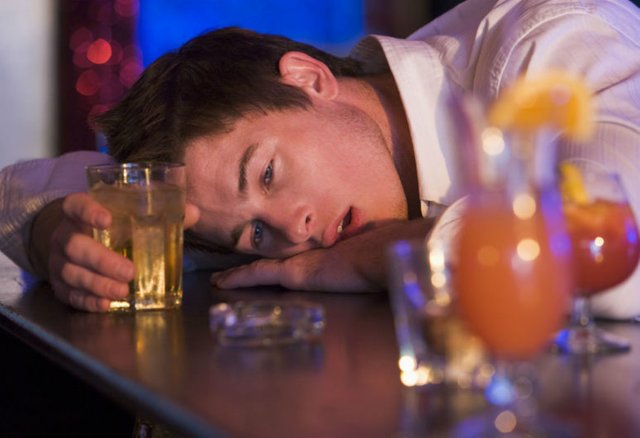Why Is It So Common To Face Our Problems With Alcohol? - Steemit
Alcohol is a legal drug that can change your mood extremely quickly and many people admit that it helps when they feel nervous or depressed.
Some call it "psychological dependence", others say that drinking alcohol is "self-medication".
But whatever the qualification we give you, have you ever wondered if you are using alcohol as a strategy to face the problems in your life?
And what is the difference between the use and abuse of alcohol?
Caroline suffers anxiety and, as she said, in the past she used to use alcohol to cope with it.
"About two years ago I was going through a very stressful period in my life and that resulted in a very severe anxiety," he says.
"I was suffering from panic attacks and had a series of horrible symptoms, I tried to convince myself that they were not panic attacks, that there was something totally wrong with me."
"The only way I could relax was with a bottle of wine, only this way I could feel 'normal', that is, get home from work, cook, clean ... only drinking alcohol could carry out those activities" says Caroline.
Alcohol to "work"
Caroline discovered that swimming provided relief from her anxiety and now she swims regularly as a form of therapy.
But just as she used to, many other people use alcohol to help her "function" in life.
"Human beings have always used substances to improve their mood, we have done it since the beginning of history," Dr. Julia Lewis, a psychiatrist specializing in addictions who works in group therapies in Newport, Wales, explains to the BBC. .
"It would be impossible to tell people that they should never use substances or do anything that modifies their brain."
But, what is the difference between that area in which alcohol is helping us to face our problems and when we move to dependency?
"People who use alcohol to overcome their problems are essentially dealing with the stress of daily life with a glass of wine," explains Dr. Lewis.
"It's something you do every day: drink to overcome a disappointment on Monday, drink to reward yourself for something you did well on Tuesday, etc."
The expert explains that a warning sign to know if you passed to the dependency, would be to ask you: if I do not consume alcohol this particular day, what happens to me?
"If you do not drink alcohol, do you feel irritated, anxious and angry? If so, then alcohol has started to be a problem for you," explains the psychiatrist.
Caroline realized that alcohol was already a problem when she saw that she could not go out or socialize without drinking alcohol.
"Only after I had a couple of glasses of wine could I feel confident, amused, could I talk to people, that was the person I wanted to be, but I could not be without alcohol," he tells the BBC.
"With the first gulp of alcohol, I immediately felt relaxed, even from the moment I opened the bottle of wine I was beginning to feel that I would soon begin to relax."
But what is it about alcohol that helps us relax and face our problems?
"Alcohol causes a sudden increase in endorphins in the brain, which gives us a sense of well-being," explains Dr. Lewis. "They improve your mood, but when you stop drinking, that mood goes down again."
"The problem is that alcohol also produces in the brain an increase in compounds called dynorphins, which work in a totally opposite way to endorphins," he adds.
"Your endorphins give you an increase in happiness and your dynorphins cause a fall in your mood."
Thus, when you start drinking alcohol regularly, the increase in happiness that endorphins give you is getting smaller and smaller and the fall of your mood that your dynorphins cause is getting bigger and bigger.
Gaba and glutamate
Thus, alcohol acts as a stimulant, but also as a depressant.
But alcohol also activates in our brain another system of neurotransmitters - the chemical compounds that transmit the signals that control mental processes such as behavior and emotions - called gaba and glutamate.

Source
"Gaba is your neurotransmitter in charge of reducing your energy levels and calm down, and it is virtually in your entire brain," explains the psychiatrist.
"When we drink alcohol, our gaba levels increase and we feel that calming and drowsy effect".
"Glutamate, on the other hand, is your main stimulant neurotransmitter, and the ideal thing for the brain is to have a balance between the calming effect of gaba and the stimulating effect of glutamate."
But if you drink alcohol every day, the calming effect of gaba is constantly activated and what the brain does is increase the stimulating effect of glutamate.
And that is what makes us feel anxious.
"Because what happens is that when you do not drink alcohol glutamate becomes hyperactive, which makes you feel anxious and feel that you need to have another drink of alcohol," says Julia Lewis.
That is to say, the alcohol and the dependence of this one causes an imbalance in our brain
"In effect, what is happening is that you start to fight against the chemical compounds in your brain," says the psychiatrist.
"About two years ago I was going through a very stressful period in my life and that resulted in a very severe anxiety," he says.
"I was suffering from panic attacks and had a series of horrible symptoms, I tried to convince myself that they were not panic attacks, that there was something totally wrong with me."
"The only way I could relax was with a bottle of wine, only this way I could feel 'normal', that is, get home from work, cook, clean ... only drinking alcohol could carry out those activities" says Caroline.
Referral link
https://smartsteem.com?r=aavocadob


Hola guapo